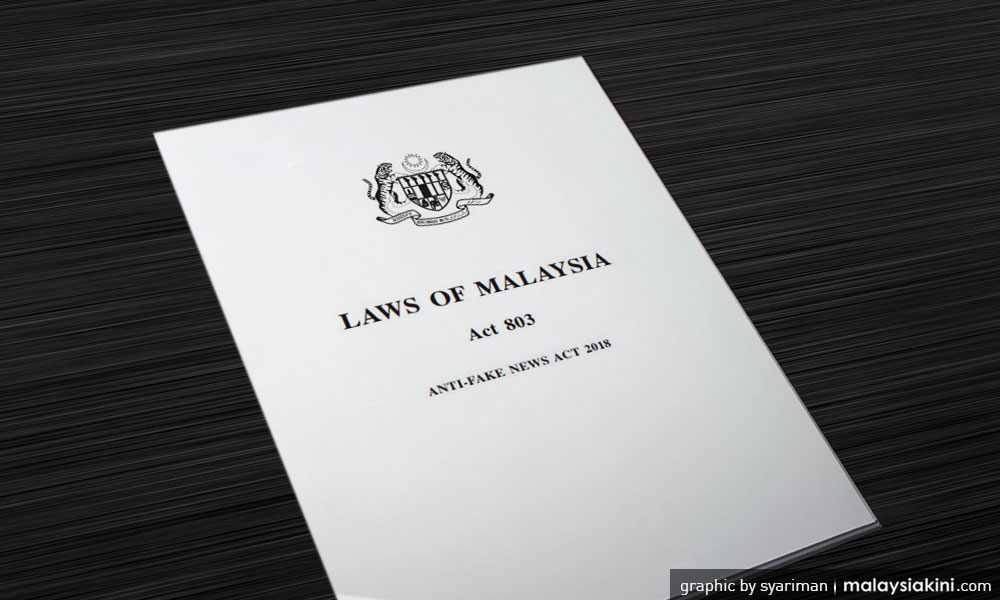
When our neighbour, Singapore, is now walking towards realising a dedicated law that penalises wrongdoers who are at fault for saying "untrue" and "manipulative" things online, the government of New Malaysia remains stagnant in repealing the Anti-Fake News Act 2018 that was proudly presented by the administration of Najib Abdul Razak.
As verbalised in the joint press conference of Malaysia-Singapore recently, a bill that is being proposed would imprison offenders up to 10 years is named Protection from Online Falsehoods and Manipulation (Pofma).
With the idea of enacting a special law that could make an online user think hundreds of times before saying bad things or lies on the internet, especially on social media like Twitter, Singapore is joining other developed European countries like Germany in making the world of information technology lawful.
To me, if the government is serious about withdrawing the Anti-Fake News Act from Malaysia's law dictionary, it must precisely think about possible after-effects that might detrimentally affect the government's image, especially when it comes to talking about "hateful" comments.
Supposedly, the Anti-Fake News Act does not just protect the government. I mean, if it is considered to be continued, the law must be equally protecting all segments of Malaysians, regardless of their political flags and religions.
The prime objectives of the creation of the law were unclear. We didn't have the idea as to why it was demanded to be made a parliamentary act. Had the previous government been badly 'badmouthed' until it could not focus on properly governing the country?
Even though the revocation of the law was successfully corroborated in the House of Representatives last year, the Senate, then, declined it. So, the government will possibly get it re-debated in the Parliament and passed with the majority votes of the MPs.
The Anti-Fake News Act had been publicly seen as a muter that mutes people's freedom to voice what their "heart says".
The stigma of such law is global. Even in Germany, where its Network Enforcement Act was passed by its Parliament a year before our country's, received unhappy responses from various parties, including the Human Rights Watch.
The German law strictly forces social media companies to erase disrespectful comments within 24 hours or they will have to be ready to pay up to 50 million euros in punishment.
Such a law is being viewed as the best example by other Asean countries like the Philippines and Singapore. Germany’s Network Enforcement Act is currently being reviewed for amendments that could fit every angle's suitability.
Laws that block contents that whisper hates and evilnesses are seriously needed in ensuring that our people can't disrespectfully say whatever they want.
Deceptions and other forms of "online badness" are vomited every day, with many innocent people victimised by those who hide behind the screens or the keyboard warriors.
We don't want to be regularly fed with untrue stories that could derail our focus from receiving factual information that can only be tuned into our minds if we are not ignorant and not against reading.
So, what's your own say about the Anti-Fake News Act? Yay or Nay? - Mkini


No comments:
Post a Comment
Note: Only a member of this blog may post a comment.